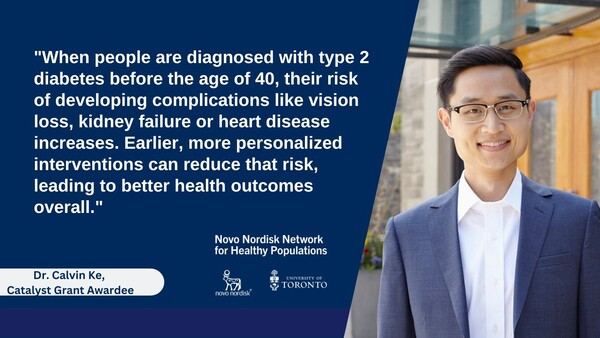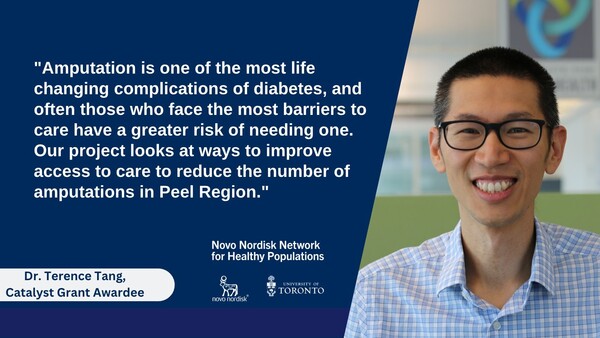
In June, the Novo Nordisk Network for Healthy Populations at the University of Toronto awarded Catalyst Grants to two projects aimed at improving health outcomes and reducing the risk of type 2 diabetes in Peel Region.
“The goal of the Network for Healthy Populations is to ensure that research addressing community needs, and supporting better health outcomes is being done in this region,” says the Network’s director, Dr. Lorraine Lipscombe. “These cities and their diverse communities present an exceptional opportunity to explore ways in which we can reduce the risk and burden of chronic illnesses, like type 2 diabetes, through improving local services and the overall environment.”
The Network for Healthy Populations supports research that looks at how changes to elements within a community could improve overall health outcomes for everyone living there. This includes a wide variety of things, from walkable neighbourhoods, community services and infrastructure, to poverty, food insecurity, racism and trauma. The overall goal is to work directly with the community, including government bodies, to determine ways to bring positive change and to implement the findings that could do the most overall good.
The two funded programs both look at areas within the region where healthcare services could be improved through systemic change. They also include partnership with community organizations to ensure that any programming that stems from the findings will actually meet the needs of the people it is meant to support.
The funded projects are:

Dr. Calvin Ke, a Clinician Scientist from the University of Toronto, received $150,000 for his project that aims to create a personalized care pathway for those diagnosed with type 2 diabetes before the age of 40. This particular group is at great risk for complications and can benefit from earlier and more tailored interventions – resulting in fewer hospitalizations, better overall health and less cost to the healthcare system. Inspired by a program already being used in Hong Kong, this project aims to empower young adults to manage their type 2 diabetes and prevent complications.

Dr. Terence Tang, a Clinician Scientist from Trillium Health Partners’ Institute for Better Health, received $148,000 for his project aimed at reducing diabetes-related amputations in the region through addressing health inequities. This project will look at the equity-based barriers to receiving foot care that exist for those living with type 2 diabetes in the area, and how to remove those barriers to reduce the number of amputations. Diabetes-related amputations are largely avoidable if good care is received early, and are extremely traumatic for the patient and costly to the healthcare system. Often, those at greatest risk for amputation are also those facing the most barriers to care. Dr. Tang will work with community organizations to look for ways to improve the pathway to care and better support those with type 2 diabetes.
About the Novo Nordisk Network for Healthy Populations at the University of Toronto
With the world facing rising rates of chronic conditions like diabetes, the Novo Nordisk Network for Healthy Populations at the University of Toronto unites world-leading researchers and students at U of T with patients, clinicians, community members, policymakers, and city planners in Peel to co-create solutions that will make populations healthier in an effective, feasible, sustainable, and equitable way. Based at U of T Mississauga, the Network’s scalable solutions are meant to have impact globally as more cities adopt and adapt these for their own contexts. Ultimately, the Network aims to discover, implement, and validate feasible, equitable, and sustainable solutions that can make cities around the world healthier places to live — for all of their residents.